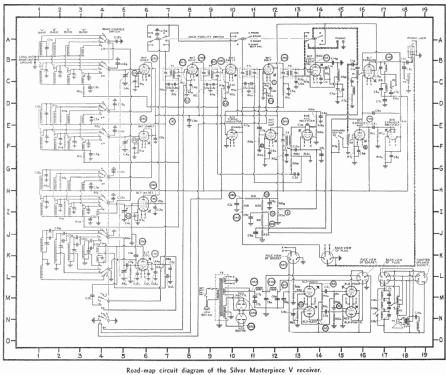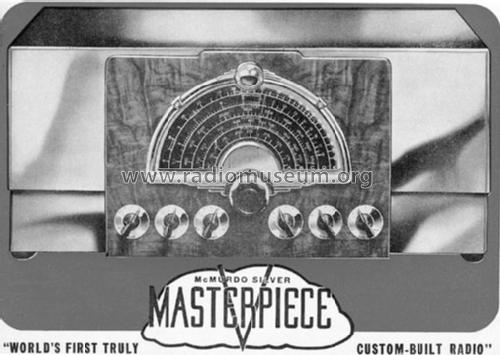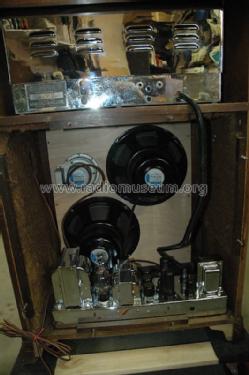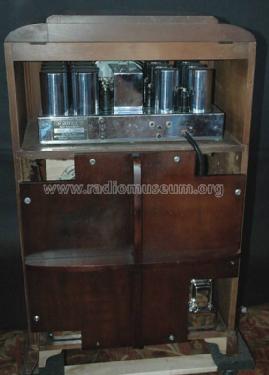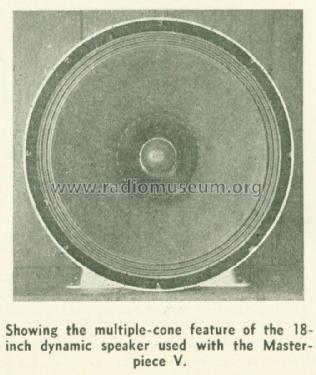Masterpiece V (5)
McMurdo Silver, Inc.(pre WW2); Chicago
- País
- Estados Unidos
- Fabricante / Marca
- McMurdo Silver, Inc.(pre WW2); Chicago
- Año
- 1936
- Categoría
- Radio - o Sintonizador pasado WW2
- Radiomuseum.org ID
- 114350
Haga clic en la miniatura esquemática para solicitarlo como documento gratuito.
- Numero de valvulas
- 20
- Principio principal
- Superheterodino con paso previo de RF
- Gama de ondas
- OM, OL y más de dos OC
- Tensión de funcionamiento
- Red: Corriente alterna (CA, Inglés = AC)
- Altavoz
- 3 Altavoces
- Material
- Metálico
- de Radiomuseum.org
- Modelo: Masterpiece V - McMurdo Silver, Inc.pre WW2;
- Forma
- Chasis (tambien de autoradio)
- Anotaciones
- The McMurdo Silver Masterpiece V
In 1936 another new model appeared, the Masterpiece V. A complete re-design, in addition to the use of metal tubes were incorporated, the 20 tube set now had a larger and more impressive dial and front panel. The much-refined circuit used two 6K7's in the RF stages, a 6L7 mixer, a 6J7 oscillator, three 6K7's in the IF, a 6Q7 second detector and first audio, a 6K7 and 6H6 as AVC amplifier and rectifier, two 6C5's in push-pull driving two metal 6L6's in the output, and two 5Z3 rectifiers. In addition, the receiver had a volume-expander using a 6L7, 6C5 and a 6H6. A 6G5 Tuning-eye tube replaced the meter used in previous models. This was McMurdo Silver's first major attempt to capture some of Scott's high-end market.
The IF bandwidth control retained the system used in the previous model; three stages for maximum selectivity, and just one for high-fidelity local reception.
Bass and treble controls were used, along with the new volume expander control. The audio system was now resistance-coupled, eliminating the interstage transformer which was a feature of earlier designs. Bass and treble controls are cut only but bass boost is accomplished in the volume control circuit. The 25Watt power amplifier drives two Jensen A12 electro-dynamic speaker mounted in a lined infinite baffle speaker enclosure for superior bass response.
A phono jack was provided so that the audio signal from the radio and phono inputs could be fed to a separate amplifier, perhaps for earphone or public address use. Plugging into this jack disabled the output amplifiers.
- Procedencia de los datos
- -- Collector info (Sammler)
- Autor
- Modelo creado por Konrad Birkner † 12.08.2014. Ver en "Modificar Ficha" los participantes posteriores.
- Otros modelos
-
Donde encontrará 40 modelos, 38 con imágenes y 8 con esquemas.
Ir al listado general de McMurdo Silver, Inc.(pre WW2); Chicago
